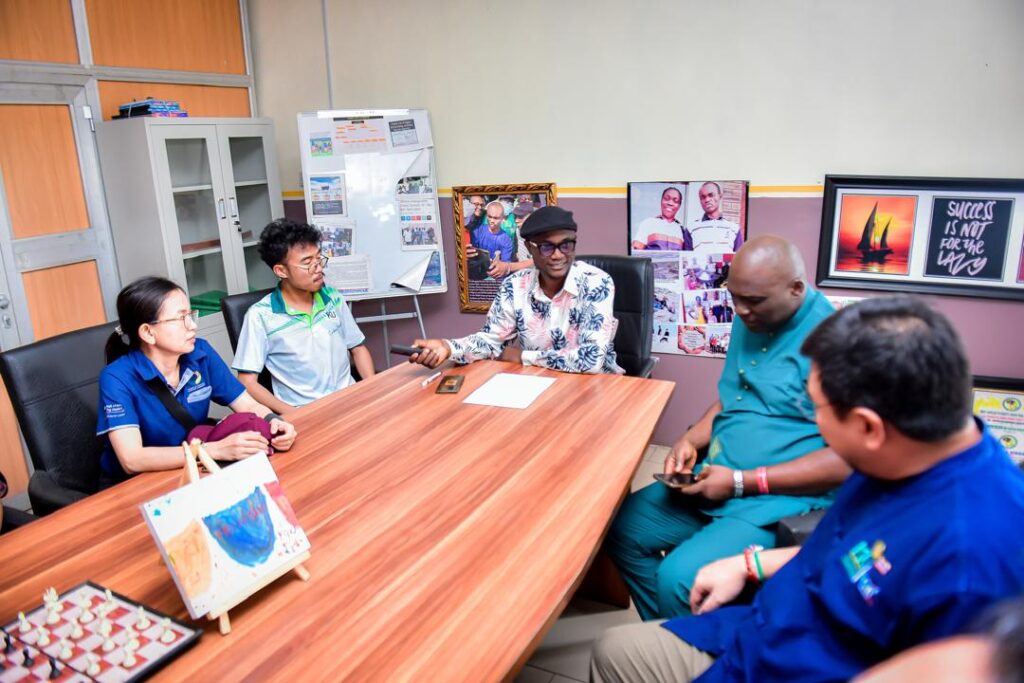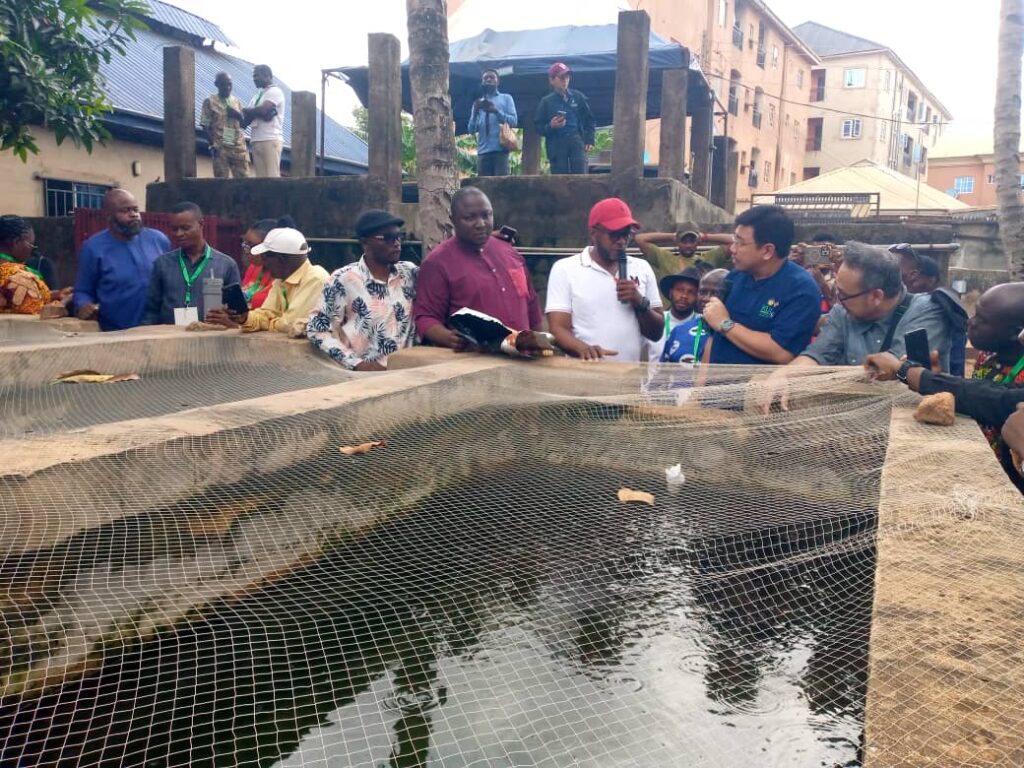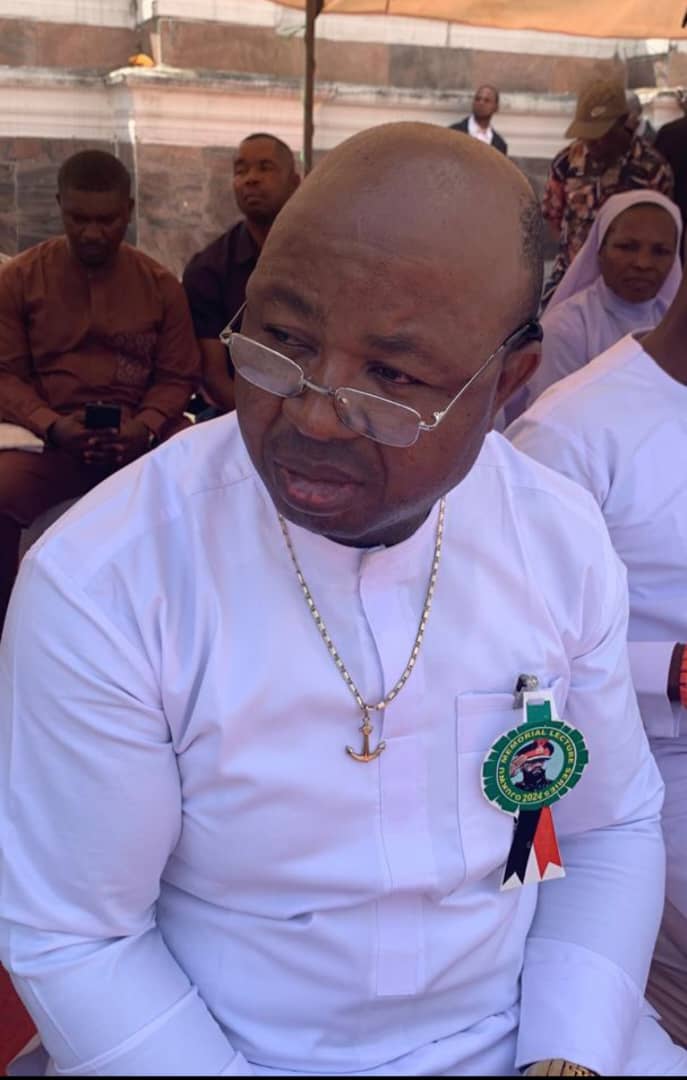Kenechukwu Ofomah
A delegation from a renowned Agricultural University, the Kasetsart University, Thailand has visited the Fisheries and Aquaculture Business Development Agency, FABDA Anambra State and a private fish farm, House of Tully.
The visit is part of collaborative efforts with the Federal Co-operative College Oji River to develop the Catfish business in Nigeria and the Southeast.
The followed a two-day National Fish Breeding Workshop earlier held at the Federal Co-operative College, FCC, Oji River, Enugu State.
The FABDA Managing Director and Chief Executive Officer, Mr Emeka Iloghalu, presented a keynote address x-raying the exploits of the agency in streamlining the businesses along the fisheries and aquaculture value chain in Nigeria.
He had stressed the need to establish a Brood Stock Bank to support Southeast and especially, Anambra’s target for Table Fish Production volumes as a pilot.
During the field visit, the Thai University delegation, led by the Assistant to the President for Research and Internationalization, Kasetsart University, Prof. Kornsorn Srikulnath and the FCC team, led by the Provost, Dr. Ejikeme Obidiegwu, toured the House Tully Farms.
They equally garnered hands-on experience on Catfish production and business activities, and the value chain brood stock farming, fingerlings production, table fish production, fish processing among others.
Thailand Team Lead
The Thailand team lead, Prof Srikulnath, said his team were in Anambra to study the Catfish supply chain, considering Nigeria’s position as a major stakeholder in Catfish production globally.
He said Kasetsart University, Thailand would like to explore new prospects and partnerships with the private sector, the government and the big market in Africa.
“Considering what we have seen on ground, the state has all the facilities on the supply chains including the processing aspects.
“There is, however, a need to collaborate to see how to better the process,” he noted.
In his remarks, ther FCC Provost, Dr Obidiegwu, explained that the visit was about ensuring food security, and a sustainable agricultural system.

He said, “We felt that as part of our discussion with our foreign partners, to visit a major integrated urban farm in Awka, alongside our foreign partners is necessary.
“We had hands-on experience of operations at the Fish business facility and we have learned a lot. They too, have seen for themselves.
“The FABDA, the College and the individual businesses are all stakeholders, and we are working together.
“The FABDA is a strategic agency that has a lot of value to place on the entire fish value chain, and it is close to us at Oji River.
“So, our visit is part of our collaborations with strategic partners and I am hopeful that our collaboration will yield a lot of projects.”
Enriched partnership
On his part, the FABDA MD/CEO, Mr. Iloghalu said the field visit targets to enrich the partnership between the FABDA, the FCC and the Thai partners.
He acknowledged that Thailand has strength in breeding, the genetics, among other aspects.
Iloghalu said his team has equally suggested that the collaboration should translate to the establishment of a brood-stock bank around here.
He re-emphasized the vision of the FABDA and the target to drive Anambra’s Fish industry to do 51 million kg of table-fish annually.
FABDA MD noted that to accomplish such volume and the vision, the state requires a stable supply of brood stock and seed fish.
“The table fish does not happen on its own, it requires seed fish. Seed fish emanates from brood stock.
“So, this collaboration is of great interest to us because once we are able to have a stable brood stock bank, it will guarantee the supply of seed fish.
And that means that we will be achieving our target faster than we expected and that we are making progress in anchoring the value chain that is our mission.
So, this collaboration is crucial to our achieving our short-term target for self-sufficiency in table fish production in Anambra State.
FABDA Mandate
Iloghalu said his agency’s mandate is the repositioning of the fisheries and aquaculture sector in Anambra for effective and efficient governance, regulation, productivity and growth.
It is also to guide the operators in the value chain, to operate in more organized and cooperate manners, with clear definition of their business activities.
“If each of the Fish businesses is properly profiled with accurate data, we would be able to identify their challenges and solve the problem of the amorphous nature of fish businesses which we met on ground.

“The farm we visited has been able to streamline its activities and the units we have here represent distinct business opportunities that investors can latch onto and grow.
“So, we are working to get operators to be specialized and select a segment in the value chain.
“This will enable us to play the linkage role and get their businesses where they ought to be,” Iloghalu concluded.





